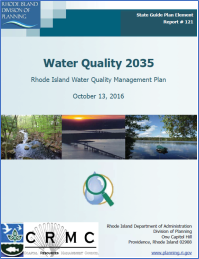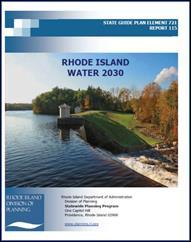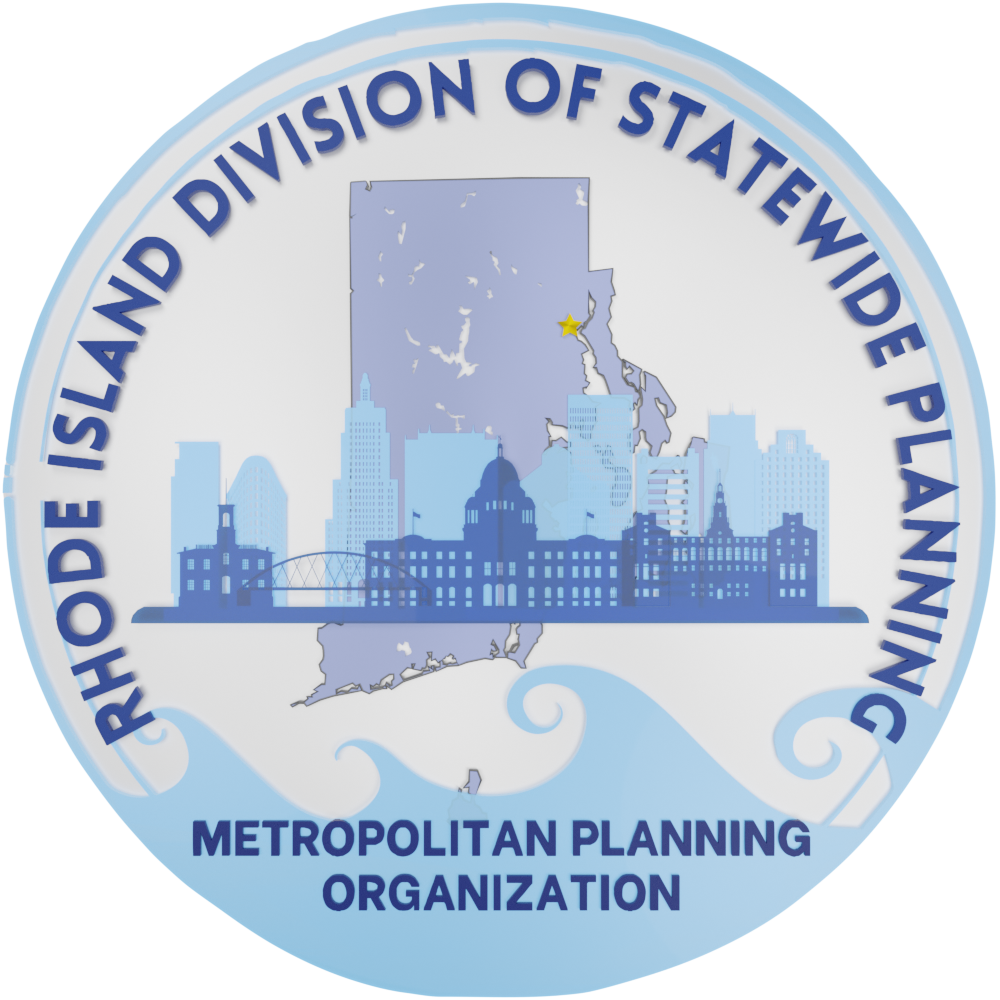Water Policy Planning
The Division of Statewide Planning works with the Department of Health, the Department of Environmental Management’s Water Resources Office, Water Resources Board, municipalities, water suppliers, and other entities for setting goals and policies concerning the protection and management of all water resources in the State.
Water Quality 2035 – State Guide Plan Element

Water Quality 2035 stresses the need for careful management of our fresh and salt water resources. It was adopted by the State Planning Council on October 13, 2016. Maintaining acceptable quality and quantities of water while balancing the needs of natural systems with human activity and sustainable development is complex. The Element contains goals and policies for the protection and restoration of water quality and aquatic habitats. Trends on water quality and aquatic habitat conditions and the status of Rhode Island waters along with water quality impairments and threats are discussed. The Plan outlines a management approach to address the issues, details the various roles and responsibilities, and discusses priorities for water quality management. Watershed planning is the basis for implementation of the management and planning activities The Plan highlights 4 overarching management issues, 26 pollution sources and other stressors to aquatic habitat, and presents implementation actions for each to achieve the clean water goals. Substantial progress has been made in our State by controlling the discharge of pollutants from sanitary and industrial wastewater. However, managing the more diffuse sources of pollution associated with human land uses, including stormwater runoff, continues to present significant challenges. The Implementation Table in Part 7, contains a wide range of actions to advance progress toward the water quality goals.
As an Element of the State Guide Plan, Water Quality 2035 sets forth goals for all water resources that must, under State Law, be reflected in community comprehensive plans. Further, as an Element of the State Guide Plan, it requires state agencies, municipalities and all public and private entities using state or federal funding to carry out water resources planning, management, and projects in ways that are consistent with the Plan. This Element provides the prevailing goals and polices for water quality planning in the State.
- Water Quality 2035 (full plan)
- Water Quality Public Hearing Report 2016
- Water Quality 2035 Informational Brief
- Issues Brief: Economic Value of Water Quality August 2014
- Technical Paper 163 Road Salt
Rhode Island Water 2030 State Guide Plan Element 721

Rhode Island Water 2030, State Guide Plan Element 721, was developed by the Land Use staff of the Division of Statewide Planning in cooperation with an advisory committee of stakeholders. It was adopted by the State Planning Council on June 14, 2012. It addresses planning for all drinking water used in the State of Rhode Island, including private wells. The need to plan for the availability of water, to reduce the overall demand for drinking water, and to increase protection of all drinking water sources (public or private) is stressed. It also identifies the necessary ongoing operation and maintenance of water systems needed to meet public health standards, to sustain economic development, and to protect the overall quality of life in Rhode Island. The Plan has 7 goals, policies, and strategies for maintaining existing water systems and protecting future water supplies. Consideration is given to ground and surface water resources as components of the overall water supply system for the State. The need for careful consideration of water supply capacities and delivery systems in every community is stressed, with a need to develop allocations for land use and development based upon these capacities. As an Element of the State Guide Plan, RI Water 2030 sets forth goals for all drinking water supplies (including private wells) that must, under State Law, be reflected in community comprehensive plans. Further, as Element 721 of the State Guide Plan, it requires state agencies, municipalities and all public and private entities using state or federal funding to carry out drinking water supply planning, management, and projects in ways that are consistent with the Plan. This Element provides the prevailing goals and polices for drinking water supply planning in the State.
